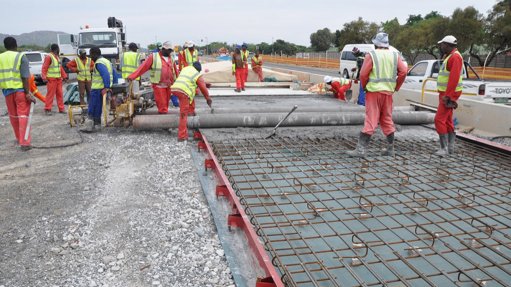
INFRASTUCTURE DEVELOPMENT As infrastructure development is critically important for South Africa's economic growth‚ it cannot be left for governments and the banks to invest alone, different forms of funding is needed
The growing need for large-scale infrastructure projects in South Africa creates an opportunity for the private sector to provide financing through project bonds and nonbank lending, professional services firm PwC argues.
“About 3.5% to 4% of the global gross domestic product from 2010 to 2030 needs to be invested yearly in electricity distribution, transportation, telecommunications and water infrastructure. “For sub-Saharan Africa, the World Bank estimates infrastructure funding requirements to be $93-billion each year in the next ten years, of which at least 50% must be financed from nongovernment sources,” says Africa Capital Projects & Infrastructure leader Jonathan Cawood.
He adds that the infrastructure market in South Africa is dominated by State-owned utilities, such as freight logistic group Transnet and power utility Eskom.
PwC Africa Power & Utilities partner John Gibbs highlights that project finance has been supporting a significant portion of investment in South Africa’s ambitious Renewable Energy Independent Power Producer Procurement Programme, with domestic banks providing access to rand finance in the volumes required. However, given the increasing regulatory pressure on commercial banks, it is difficult to see them being able to offer sufficient long- term debt finance to meet the range of infrastructure challenges facing South Africa over the next decade.
“One way to fill the resulting funding gap may therefore be through greater use of project-specific infrastructure bonds that tap into local and international capital markets,” he explains
Gibbs mentions four preconditions that should exist for a project-bond market to take root in a country.
Firstly, there should be availability of capital outside the banking system from a stable and well-structured insurance and savings industry based on retirement, savings and pension funds managed by investment professionals. Such a system creates a competitive pool of capital, seeking long-term investment opportunities, based on dependable, well-regulated returns of the type offered by well-structured infrastructure projects.
Secondly, sufficient governance and transparency in financial reporting is important as a functioning public bond market requires a significant amount of financial infrastructure, including adequate disclosure and reporting rules. The provision of additional information for investors needs to be balanced against public market information disclosure rules, which require timely dissemination to all participants.
Thirdly, balanced tax and commercial policies are important to ensure clarity of a policy and maintain a level playing field between bank debt and capital markets.
Lastly, project-specific credit support may be required to ensure that the bonds achieve an investment-grade rating acceptable to the type of investor being targeted. Suitable support mechanisms may include government support for the project entity or for the power offtaker, or risk guarantees from an appropriate financial institution.
“Despite South Africa being ahead of its neighbours in terms of infrastructure development, continued investment is needed to support the long-term socioeconomic sustainability of the country.
”